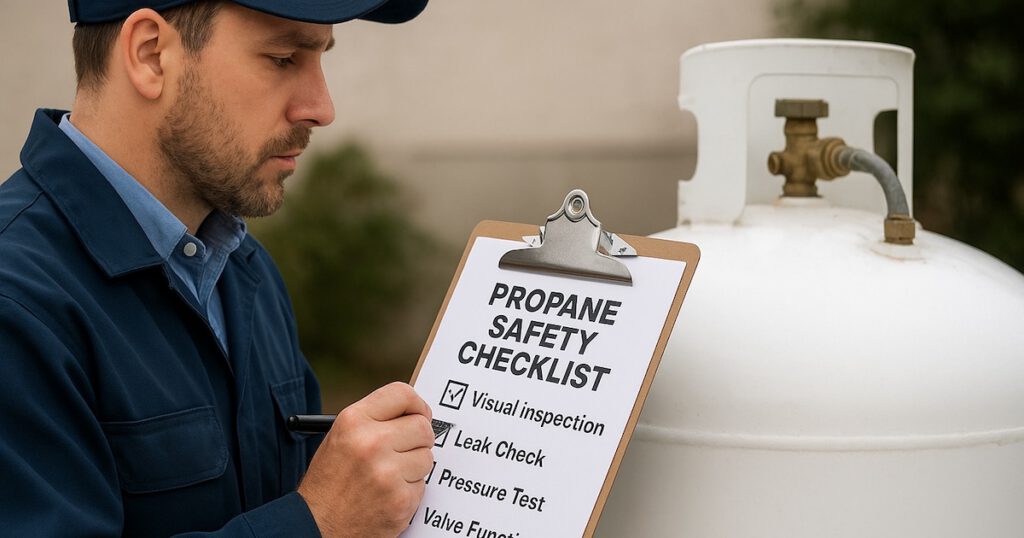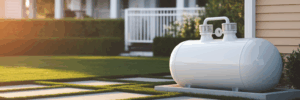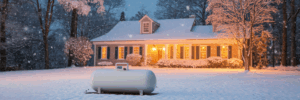
Propane is a safe and reliable fuel when handled properly, but understanding basic safety principles is crucial for preventing accidents and ensuring safe usage.
Whether you’re using propane for home heating, cooking, or outdoor activities, following proven safety guidelines protects your family, property, and community from potential hazards.
Why Propane Safety Matters
Propane powers millions of homes and businesses across America, providing clean, efficient energy for heating, cooking, and various applications. While propane is generally safe when used correctly, improper handling can lead to serious accidents including fires, explosions, and health hazards.
The good news is that most propane-related incidents are preventable with proper knowledge and safety practices. This comprehensive guide covers everything you need to know about safe propane usage, from basic handling to emergency procedures.
Basic Propane Safety Rules
Essential Safety Checklist
Following fundamental safety rules forms the foundation of safe propane use. These guidelines apply whether you’re handling a small camping cylinder or a large residential tank:
- Never store indoors — Propane tanks should always be kept outdoors in well-ventilated areas
- Maintain distance — Keep tanks at least 10 feet from ignition sources like grills, furnaces, or electrical equipment
- Regular inspections — Check hoses, valves, and connections monthly for signs of wear or damage
- Proper transportation — Transport tanks upright and secure them to prevent movement
These basic rules, when followed consistently, significantly reduce the risk of accidents and ensure safe propane usage in any setting.
Propane Storage Guidelines
Outdoor Storage Requirements
Proper storage is critical for propane safety. The key is maintaining safe distances and ventilation while protecting tanks from damage:
- Ventilation — Store in areas with good air circulation to prevent gas accumulation
- Protection from elements — Use covers to protect from direct sunlight and weather damage
- Secure positioning — Keep tanks upright and prevent them from tipping over
- Accessibility — Ensure storage areas are easy to access for inspections and maintenance
Always store propane tanks outdoors, never in garages, basements, or enclosed spaces where gas could accumulate if there’s a leak.
Tank Placement Do’s and Don’ts
Strategic tank placement prevents accidents and ensures safety:
✅ Safe Storage Locations
- Well-ventilated outdoor areas away from buildings
- Dedicated propane storage cages or enclosures
- Areas protected from vehicle traffic and equipment
- Locations with easy access for delivery and service
❌ Dangerous Storage Locations
- Garages, basements, or enclosed spaces
- Near windows, doors, or air intakes
- Close to heat sources or electrical equipment
- Areas with poor ventilation or confined spaces
Leak Detection and Response
How to Detect Propane Leaks
Early leak detection is crucial for preventing accidents. Here are reliable methods to check for propane leaks:
- Soapy water test — Mix dish soap with water and apply to connections; bubbles indicate leaks
- Propane smell — Propane has a distinct rotten egg odor added for safety
- Hissing sounds — Listen for unusual hissing or whistling from equipment
- Visual inspection — Look for frost, ice, or dirt blowing from connections
Regular leak testing should be part of your monthly propane safety routine, especially before using equipment seasonally.
Emergency Response Procedures
If you suspect a propane leak, follow these steps immediately:
- Evacuate the area — Move everyone to fresh air away from the suspected leak
- Do not use electrical switches — Avoid creating sparks that could ignite leaking gas
- Shut off propane supply — Close the tank valve if safely possible
- Call professionals — Contact your propane supplier and emergency services from a safe location
Remember: never attempt to fix leaks yourself unless you’re properly trained and equipped.
Safe Use of Propane Appliances
Propane Grill Safety
Propane grills are popular for outdoor cooking, but they require proper handling:
- Pre-use inspection — Check hoses and connections before each use
- Proper ventilation — Never use grills indoors or in enclosed spaces
- Supervision required — Never leave lit grills unattended
- Safe storage — Store propane cylinders outdoors when not in use
Always follow the manufacturer’s instructions and perform regular maintenance to ensure safe grill operation.
Propane Heater Safety
Propane heaters provide efficient indoor heating but require specific safety measures:
- Ventilation requirements — Ensure adequate fresh air circulation
- Carbon monoxide detection — Install CO detectors in heating areas
- Proper placement — Keep clear of flammable materials and proper distances from walls
- Regular maintenance — Clean and service heaters annually
Never use unvented propane heaters indoors for extended periods without proper ventilation and monitoring.
Transportation Safety
Moving Propane Tanks
Safe transportation prevents accidents and ensures proper handling:
- Upright positioning — Always transport tanks in an upright position
- Secure mounting — Use proper restraints to prevent movement
- Vehicle ventilation — Never transport in enclosed vehicle spaces
- Weather considerations — Avoid transporting in extreme temperatures
Transport propane tanks in well-ventilated truck beds or dedicated cargo areas, never inside passenger compartments.
Professional Maintenance and Inspection
Regular Inspection Schedule
Professional maintenance ensures continued safe operation:
- Annual inspections — Have systems checked by certified technicians yearly
- Pre-season checks — Inspect before heavy usage periods like winter heating
- Post-season maintenance — Prepare equipment for storage during off-seasons
- Emergency repairs — Address issues immediately when discovered
Regular professional maintenance extends equipment life and ensures safety compliance.
DIY Propane Safety Checklist
Monthly Safety Inspection
Perform this checklist monthly to maintain safe propane usage:
- ☐ Check all connections for leaks using soapy water
- ☐ Inspect hoses for cracks, kinks, or damage
- ☐ Verify tank valves operate smoothly
- ☐ Ensure proper tank positioning and security
- ☐ Test carbon monoxide detectors (if applicable)
- ☐ Check ventilation in storage and usage areas
Seasonal Safety Tasks
Complete these tasks at the beginning of each season:
- ☐ Clean and inspect all propane appliances
- ☐ Replace damaged hoses and connections
- ☐ Check and calibrate pressure regulators
- ☐ Verify emergency shut-off procedures
- ☐ Update emergency contact information
Educational Resources and Training
Safety Training Options
Enhance your propane knowledge through available resources:
- NPPA safety courses — Professional training for propane handling
- Manufacturer guidelines — Equipment-specific safety instructions
- Local fire department — Community safety workshops and inspections
- Propane supplier education — Free safety information from providers
Investing time in safety education pays dividends in accident prevention and peace of mind.
Common Safety Mistakes to Avoid
Frequent Errors and Corrections
Avoiding these common mistakes prevents most propane accidents:
- Overfilling tanks — Never exceed 80% capacity to allow for expansion
- Mixing fuel types — Use only propane in propane equipment
- Ignoring maintenance — Regular servicing prevents failures
- Improper storage — Always follow storage guidelines
Understanding and avoiding these errors significantly improves propane safety.
Emergency Preparedness
Creating an Emergency Plan
Prepare for propane emergencies with a comprehensive plan:
- Emergency contacts — Keep propane supplier and emergency numbers handy
- Evacuation routes — Plan safe exit routes from your property
- Meeting points — Designate safe gathering locations for family members
- Emergency supplies — Maintain first aid kits and emergency equipment
A written emergency plan ensures everyone knows what to do in case of accidents or leaks.
Final Safety Recommendations
Propane safety is about knowledge, preparation, and consistent practices. By following these guidelines, you can enjoy the benefits of propane energy while minimizing risks.
Remember that safety is everyone’s responsibility. Regular inspections, proper storage, and emergency preparedness create a safe environment for propane usage. When in doubt, consult with certified propane professionals who can provide expert guidance for your specific situation.
Stay safe by making propane safety a priority in your home or business. Knowledge and preparation are your best defenses against accidents.
Ready to ensure propane safety in your home? Start with a professional inspection and develop your personal safety checklist today.
About Jennifer Whitaker
Propane industry expert and content contributor for MyPropane.com.
View all posts by Jennifer Whitaker →Related Articles

Ensuring Propane Tank Safety and Longevity
Oct 3, 2025 • 7 min read
Follow this comprehensive checklist to ensure your home's propane system remains safe, efficient, and reliable for years to come.

Getting Your Propane System Ready for Winter
Oct 4, 2025 • 7 min read
Learn the essential steps to prepare your home's propane system for cold weather, ensuring safety and reliability.